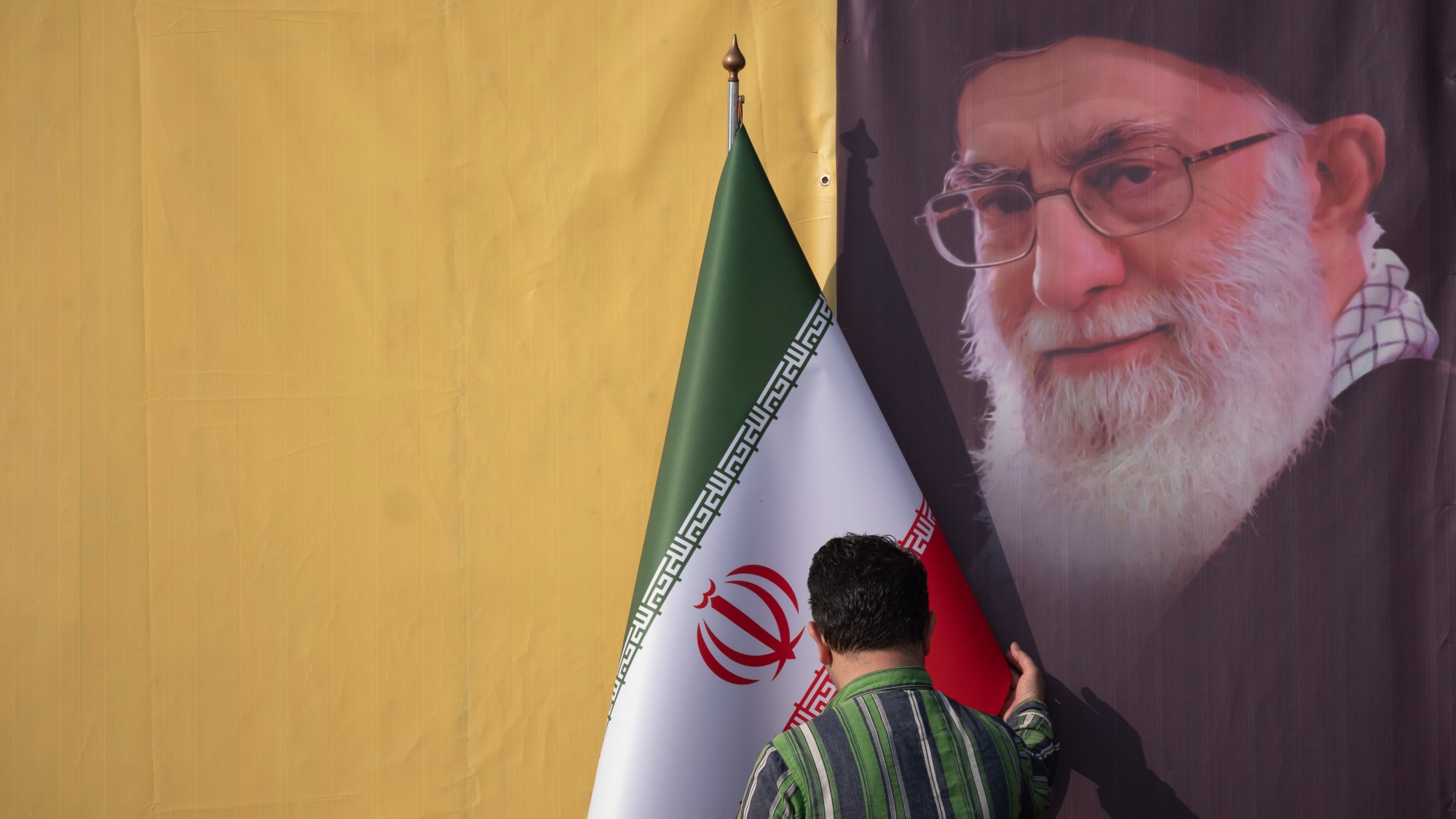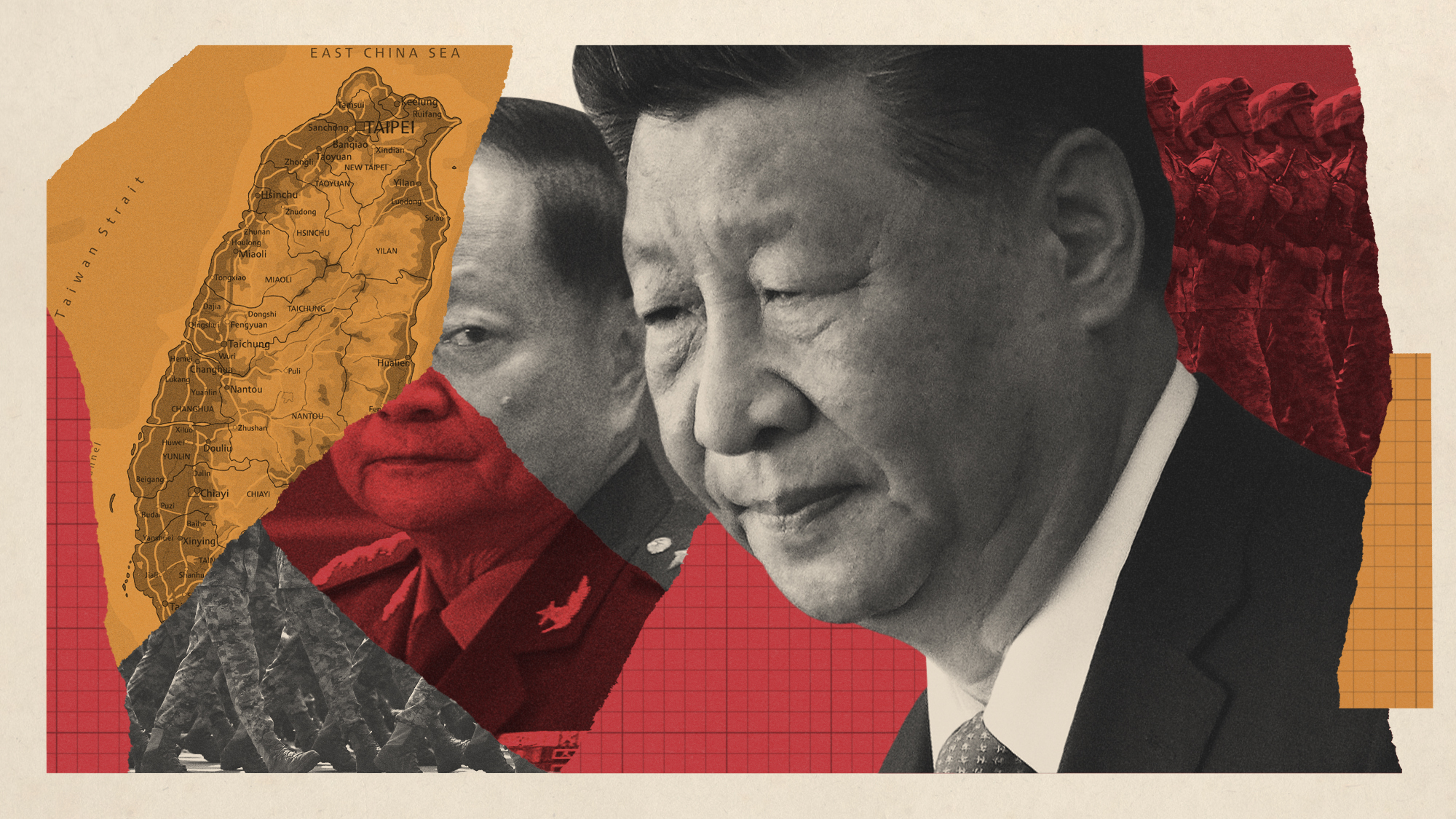Iran's allies in the Middle East and around the world
Tehran left high and dry by regional proxies and authoritarian global allies

A free daily email with the biggest news stories of the day – and the best features from TheWeek.com
You are now subscribed
Your newsletter sign-up was successful
A defiant Ayatollah Ali Khamenei said Iran had "delivered a slap to America's face" and claimed "victory" over Israel in his first public remarks about the bombing campaign against his country.
But as he looks to rebuild his shattered authority at home, he might also be asking why Iran's powerful international allies and regional proxies failed to come to its aid.
The Islamic Republic had hoped to call on the so-called "Axis of Resistance", made up of political and militant groups in the Middle East. Iran was also banking on the so-called "Crink" group of authoritarian nation states that includes China, Russia and North Korea for support. But with starkly different ideologies and competing strategic objectives, this coalition is better understood as a "marriage of convenience" – and also "desperation", said The Washington Post.
The Week
Escape your echo chamber. Get the facts behind the news, plus analysis from multiple perspectives.

Sign up for The Week's Free Newsletters
From our morning news briefing to a weekly Good News Newsletter, get the best of The Week delivered directly to your inbox.
From our morning news briefing to a weekly Good News Newsletter, get the best of The Week delivered directly to your inbox.
Russia
Iran and Russia have continued to "deepen" military and economic ties in recent years, said the House of Commons Library.
Tehran has long been suspected by Western allies of supplying Russia with weapons for use in Ukraine and in January the two countries signed a new strategic partnership treaty. While this committed them to "joint exercises and to exchange information", it "did not include a mutual defence clause". But Russian reliance on Iran "reached its zenith one year into the war, and has since been eclipsed by China and North Korea", said the Financial Times.
Moscow condemned Israel's strike on Iran as "unprovoked aggression" but in truth has, of late, "been cosplaying as an ally of Iran", said Owen Matthews in The Spectator. It still pays lip-service to Tehran but the "alliance of convenience is, in the Kremlin's eyes, very much secondary to Russia's more important role as a global power player that can stand alongside the US and China as an arbiter of world affairs".
China
China is a "key diplomatic and economic backer" of Iran, and "has moved to further deepen collaboration in recent years, including holding joint naval drills", said CNN. It continues to be the largest purchaser of US-sanctioned Iranian oil, and in 2023 Tehran joined the Shanghai Cooperation Organisation, deepening economic ties between the two countries.
A free daily email with the biggest news stories of the day – and the best features from TheWeek.com
Beijing has promised to deliver material critical for ballistic missile production, as President Xi Jinping tries to "insert himself as an influential player in allowing Tehran to rebuild its own arsenal and arm its various disabled proxies", said Devon Cross, a former defence adviser to the US government, in The Times.
But like Russia, China is playing a much bigger game. While it explicitly condemned Israel's "violation of Iran's sovereignty, security and territorial integrity", Beijing has "appeared unwilling to become further entangled in the conflict past its diplomatic efforts". Instead, it is "using the situation as another opportunity to paint itself as a responsible global player and the US as a force for instability", said CNN.
North Korea
There should, on the surface at least, be little that unites the Islamic Republic and the secretive Stalinist state, but political necessity and their status as international pariahs has dictated a certain level of cooperation and alignment.
There has long been speculation that North Korea has helped with Iran's nuclear programme. In terms of its own capability, Pyongyang has "defied all international sanctions to build up a formidable arsenal of nuclear warheads and intercontinental ballistic missiles, enough to make any potential attacker think twice", said Frank Gardner on the BBC.
North Korean leader Kim Jong Un "could even try to smuggle one of his nuclear warheads – via Russia – to Iran", said the Daily Express.
Iran's proxies
Iran has invested heavily in a network of proxy allies across the Middle East, including Hamas in Gaza, Hezbollah in Lebanon, the Houthis in Yemen and the Islamic Resistance in Iraq. It supported the Syrian regime of Bashar al-Assad until he was toppled last year.
But the so-called "Axis of Resistance" has been greatly "diminished" by over two years of Israeli operations, , said Le Monde, remained relatively silent as its patron faced the full force of Israeli and US air strikes.
Tehran's strategy has long been to use its proxies – chief among them Hezbollah – as its first line of defence in the event of a war with Israel. "The significant weakening of several members of the axis has changed the equation for Iran and limited its options" as the past few weeks have shown.
-
 Colbert, CBS spar over FCC and Talarico interview
Colbert, CBS spar over FCC and Talarico interviewSpeed Read The late night host said CBS pulled his interview with Democratic Texas state representative James Talarico over new FCC rules about political interviews
-
 The Week contest: AI bellyaching
The Week contest: AI bellyachingPuzzles and Quizzes
-
 Political cartoons for February 18
Political cartoons for February 18Cartoons Wednesday’s political cartoons include the DOW, human replacement, and more
-
 ‘The mark’s significance is psychological, if that’
‘The mark’s significance is psychological, if that’Instant Opinion Opinion, comment and editorials of the day
-
 The UK expands its Hong Kong visa scheme
The UK expands its Hong Kong visa schemeThe Explainer Around 26,000 additional arrivals expected in the UK as government widens eligibility in response to crackdown on rights in former colony
-
 ‘Hong Kong is stable because it has been muzzled’
‘Hong Kong is stable because it has been muzzled’Instant Opinion Opinion, comment and editorials of the day
-
 Is the Gaza peace plan destined to fail?
Is the Gaza peace plan destined to fail?Today’s Big Question Since the ceasefire agreement in October, the situation in Gaza is still ‘precarious’, with the path to peace facing ‘many obstacles’
-
 What do Xi’s military purges mean for Taiwan?
What do Xi’s military purges mean for Taiwan?Today’s Big Question Analysts say China’s leader is still focused on reunification
-
 ‘My donation felt like a rejection of the day’s politics’
‘My donation felt like a rejection of the day’s politics’Instant Opinion Opinion, comment and editorials of the day
-
 What is at stake for Starmer in China?
What is at stake for Starmer in China?Today’s Big Question The British PM will have to ‘play it tough’ to achieve ‘substantive’ outcomes, while China looks to draw Britain away from US influence
-
 ‘It’s good for the animals, their humans — and the veterinarians themselves’
‘It’s good for the animals, their humans — and the veterinarians themselves’Instant Opinion Opinion, comment and editorials of the day